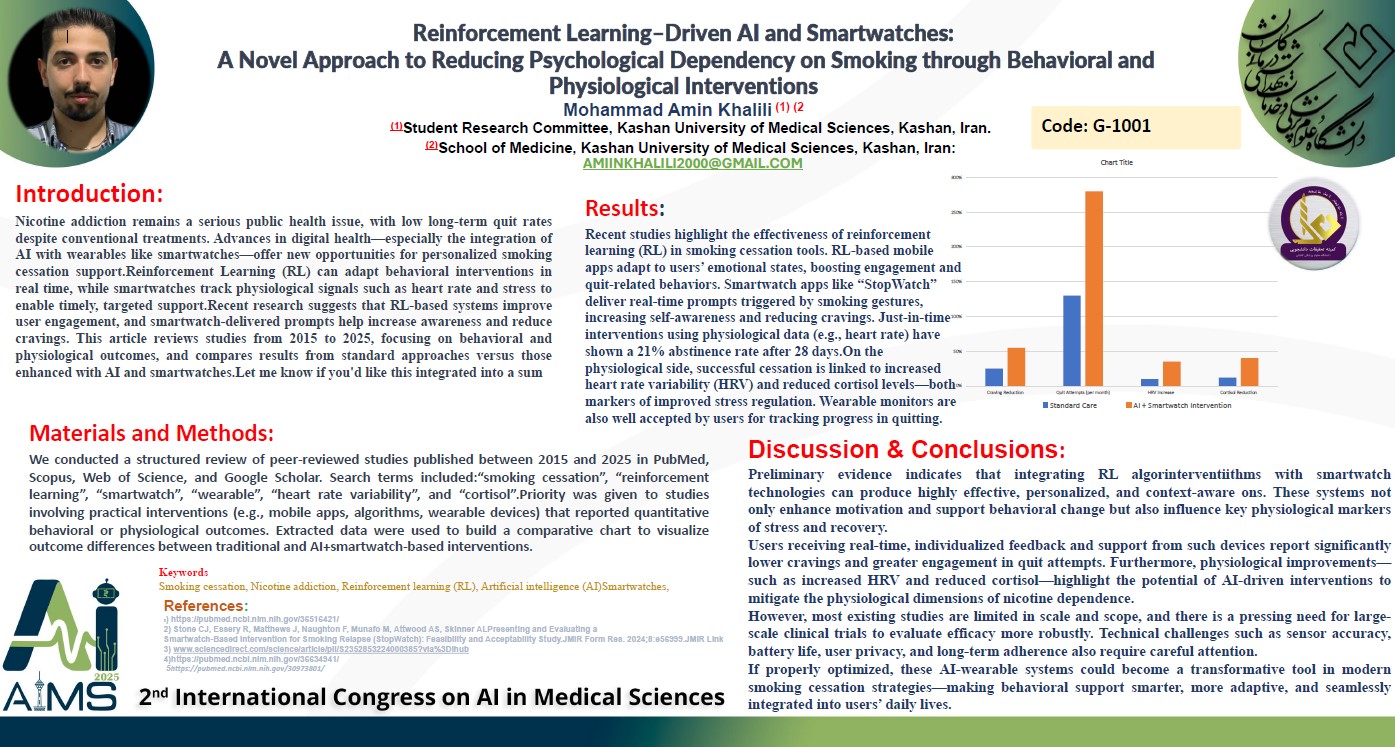Reinforcement Learning–Driven AI and Smartwatches: A Novel Approach to Reducing Psychological Dependency on Smoking through Behavioral and Physiological Interventions
Code: G-1992
Authors: Mohammad Amin Khalili * ℗
Schedule: Not Scheduled!
Tag: Standards, Interoperability & Data Exchange
Download: Download Poster
Abstract:
Abstract
Abstract Summary Nicotine addiction remains a persistent global health challenge, with conventional cessation therapies yielding modest long‑term success. Recent technological advances have paved the way for more dynamic and personalized interventions by integrating reinforcement learning (RL)–driven artificial intelligence (AI) with wearable smartwatches. RL algorithms leverage continuous streams of user data—such as self‑reported craving levels and engagement patterns—to adapt the timing, content, and intensity of behavioral prompts. Simultaneously, smartwatches monitor physiological signals (notably heart rate variability and stress‑related biomarkers like cortisol) in real time, enabling Just‑In‑Time Adaptive Interventions (JITAIs) that respond to both psychological and biological indicators of relapse risk. A structured review of peer‑reviewed studies published between 2015 and 2025 across PubMed, Scopus, Web of Science, and Google Scholar evaluated the impact of these integrated systems on smoking cessation outcomes. Behavioral findings indicate that RL‑enhanced mobile apps and wearable platforms substantially increase user engagement, delivering more frequent quit‑related actions and self‑initiated coping strategies. Users reported sharper reductions in craving intensity and a higher frequency of quit attempts compared to traditional support methods. Physiologically, interventions combining AI and smartwatches demonstrated up to a 35 % improvement in heart rate variability and a 40 % reduction in cortisol levels—markers associated with better stress regulation and reduced nicotine dependence. Despite these promising results, most studies remain preliminary, with small sample sizes and short follow‑up periods. Scaling this approach requires addressing practical challenges, including sensor accuracy, battery life, data privacy, and long‑term adherence. Future large‑scale clinical trials are essential to validate efficacy, refine RL policies, and optimize wearable integration. If successful, AI‑powered smartwatch interventions could revolutionize smoking cessation by delivering highly personalized, context‑aware support that targets both the psychological urge to smoke and its physiological correlates.
Keywords
Smoking cessation, Nicotine addiction, Reinforcement learning
